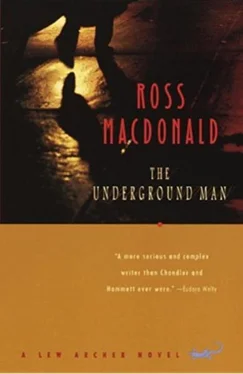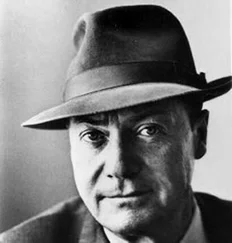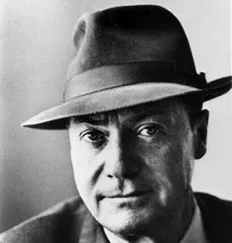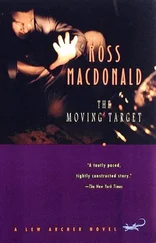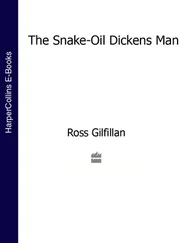Both of them could end up there, I was thinking. I said: “Don’t let her scare you, Fritz. You won’t be put in jail for anything you did because she made you.”
“I won’t stand for this!” she cried. “You’re turning him against me.”
“Maybe it’s time, Mrs. Snow. You’ve been using your son as a scapegoat, telling yourself that you’ve been looking after him.”
“Who else would look after him?” Her voice was rough and rueful.
“He could get better treatment from a stranger.” I turned back to him: “What happened Saturday morning, when Stanley Broadhurst borrowed the pick and shovel?”
“He borrowed the pick and shovel,” Fritz repeated, “and after a while I got nervous. I went up the trail to see what they were doing up there. Stanley was digging right where his father was buried.”
“What did you do?”
“I went back down to the ranch and phoned her.”
His wet green gaze rested on his mother. She made a shushing noise which narrowed into a hiss. I said over it:
“What about Saturday night, Fritz? Did you drive down to Northridge?”
“No sir. I was here in bed all night.”
“Where was your mother?”
“I don’t know. She gave me sleeping pills right after Albert phoned. She always gives me sleeping pills when she leaves me by myself at night.”
“Albert phoned here Saturday night?”
“Yessir. I answered the phone, but it was her he wanted to talk to.”
“What about?”
“They were talking about money. She said she had no money–”
“Shut up!”
Mrs. Snow raised her fist in a threat to her son. Though he was bigger and younger and probably stronger, he crawled away from her on the bed and huddled crying in the corner.
I took hold of Mrs. Snow’s arm. She was taut and trembling. I drew her into the kitchen and shut the door on the dissolving man. She leaned on the counter beside the kitchen sink, shivering as though the house was chilly.
“You killed Leo Broadhurst, didn’t you?”
Mrs. Snow didn’t answer me. She seemed to have been overcome by a terrible embarrassment that tied her tongue.
“You didn’t stay in the ranch house that night when Elizabeth Broadhurst and Stanley went up the mountain. You went up there after them and found Leo lying unconscious and stabbed him to death. Then you came back here and told your son to bury him and his car.
“Unfortunately Albert Sweetner knew where the body was buried, and eventually he came back here hoping to turn his knowledge into money. When Stanley failed to show up with the money Saturday night, Albert phoned here and tried to get some more out of you. You drove down to Northridge and killed him.”
“How could I kill him – a big strong man like Albert?”
“He was probably dead drunk when you got to him. And it never occurred to him that he was in danger from you. It never occurred to Stanley, either, did it?”
She remained silent, though her mouth was working.
“I can understand why you killed Albert and Stanley,” I said. “You were trying to cover up what you’d done in the past. But why did Leo Broadhurst have to die?”
Her eyes met mine and blurred like cold windows. “He was half dead already, lying there in his blood. All I did was put him out of his misery.” Her clenched right hand jerked downward convulsively, reenacting the stabbing. “I’d do the same for a dying animal.”
“It wasn’t compassion that made you murder him.”
“You can’t call it murder. He deserved to die. He was a wicked man, a cheat and a fornicator. He got Marty Nickerson pregnant and let my boy take the blame. Frederick has never been the same since then.”
There was no use arguing with her. She was one of those paranoid souls who kept her conscience clear by blaming everything on other people. Her violence and malice appeared to her as emanations from the external world.
I crossed the room to the phone and called the police. While the receiver was still in my hand, Mrs. Snow opened a drawer and took out a butcher knife. She came at me in a quick little dance, moving to jangled music I couldn’t hear.
I caught her by the wrist. She had the kind of exploding strength that insane anger releases. But her strength soon ran out. The knife clattered on the floor. I pinned her arms and held her until the police arrived.
“You’ll shame me in front of the neighbors,” she said desperately.
I was the only one watching as the patrol car moved away through the brown water with Fritz and his mother sitting behind a screen in the back seat. I followed them downtown, thinking that quite often nowadays the low-life subplots were taking over the tragedies. I gave a more prosaic explanation to a team of police detectives and a stenotypist.
My statement was interrupted by a phone call from Brian Kilpatrick’s fiancee. Kilpatrick had walked into his game room and shot himself.
The briefcase I took from him, containing Elizabeth Broadhurst’s guns and records, was in the trunk of my car. I let it stay there unreported for the present, though I knew all the facts of Leo Broadhurst’s death would have to come out at Edna Snow’s trial.
Before night fell, Jean and I and Ronny drove out of town.
“It’s over,” I said.
Ronny said, “That’s good.” His mother sighed.
I hoped it was over. I hoped that Ronny’s life wouldn’t turn back toward his father’s death as his father’s life had turned, in a narrowing circle. I wished the boy a benign failure of memory.
As though she sensed my thoughts, Jean reached behind him and touched the back of my neck with her cold fingers. We passed the steaming remnants of the fire and drove on south through the rain.
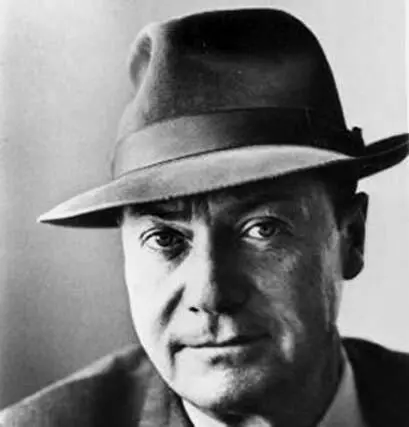
Ross Macdonald’s real name was Kenneth Millar. Born near San Francisco in 1915 and raised in Ontario, Millar returned to the United States as a young man and published his first novel in 1944. He served as the president of the Mystery Writers of America and was awarded their Grand Master Award as well as the Mystery Writers of Great Britain’s Gold Dagger Award. He died in 1983.
